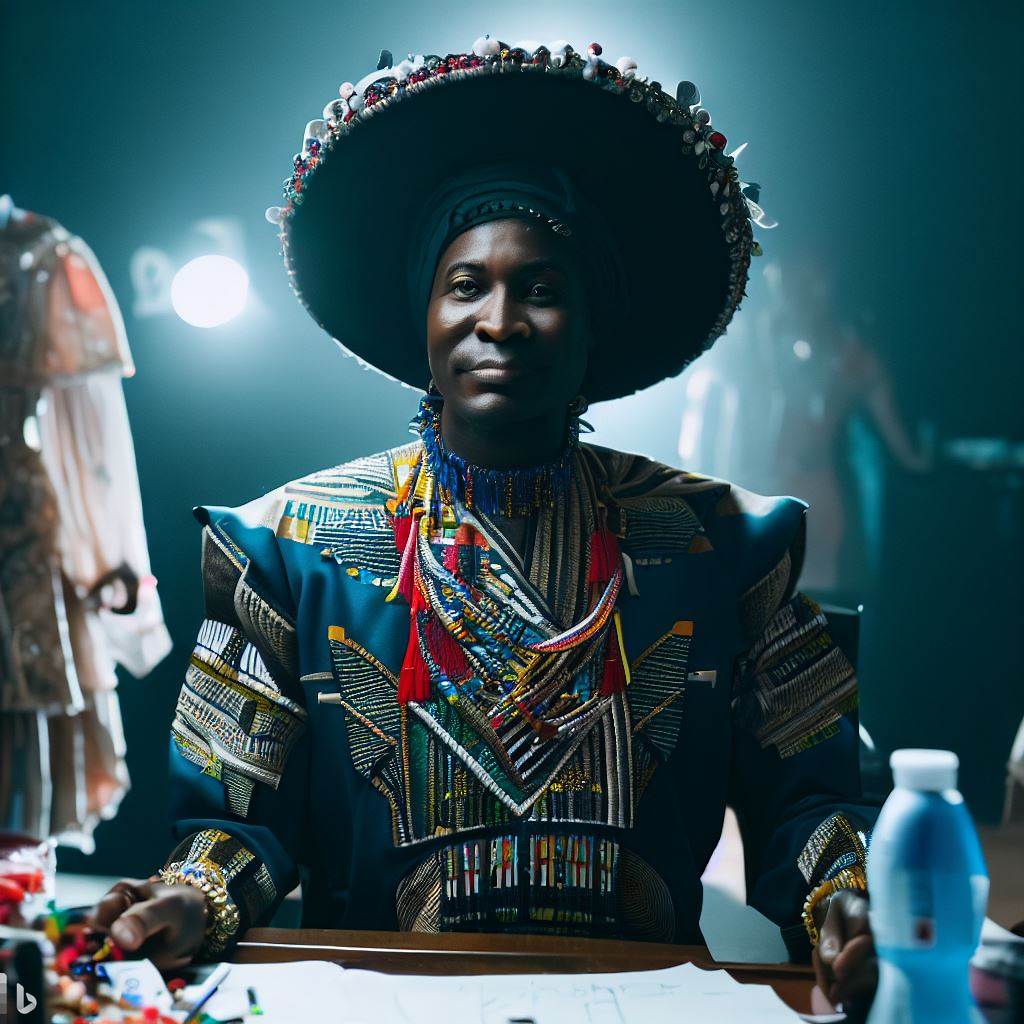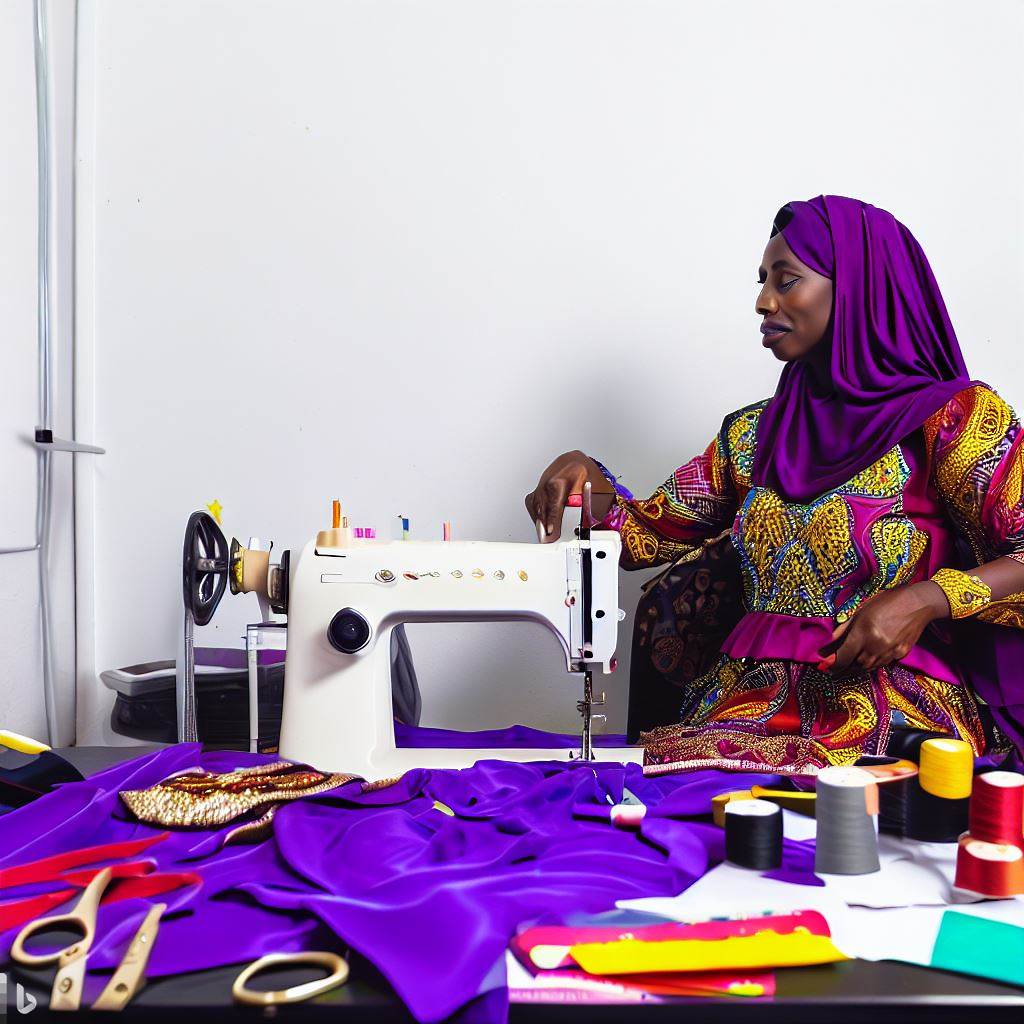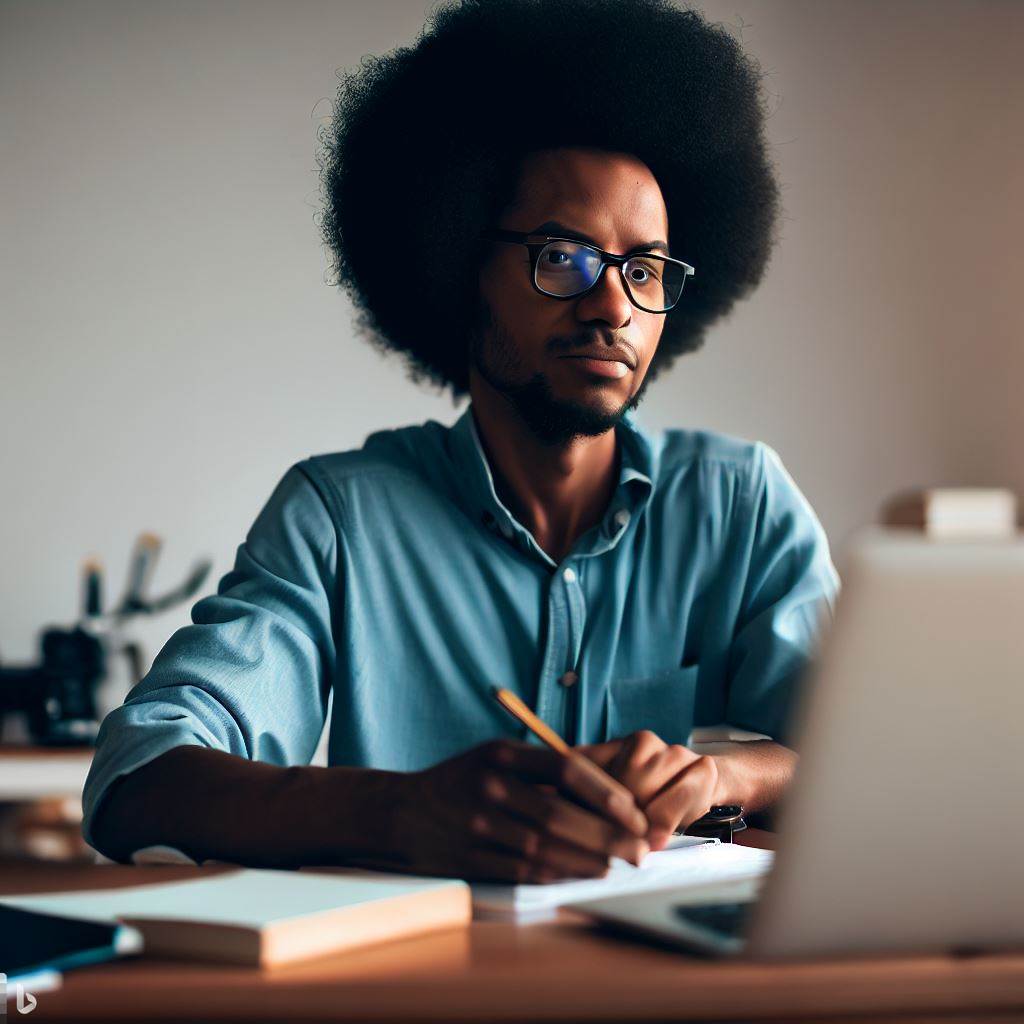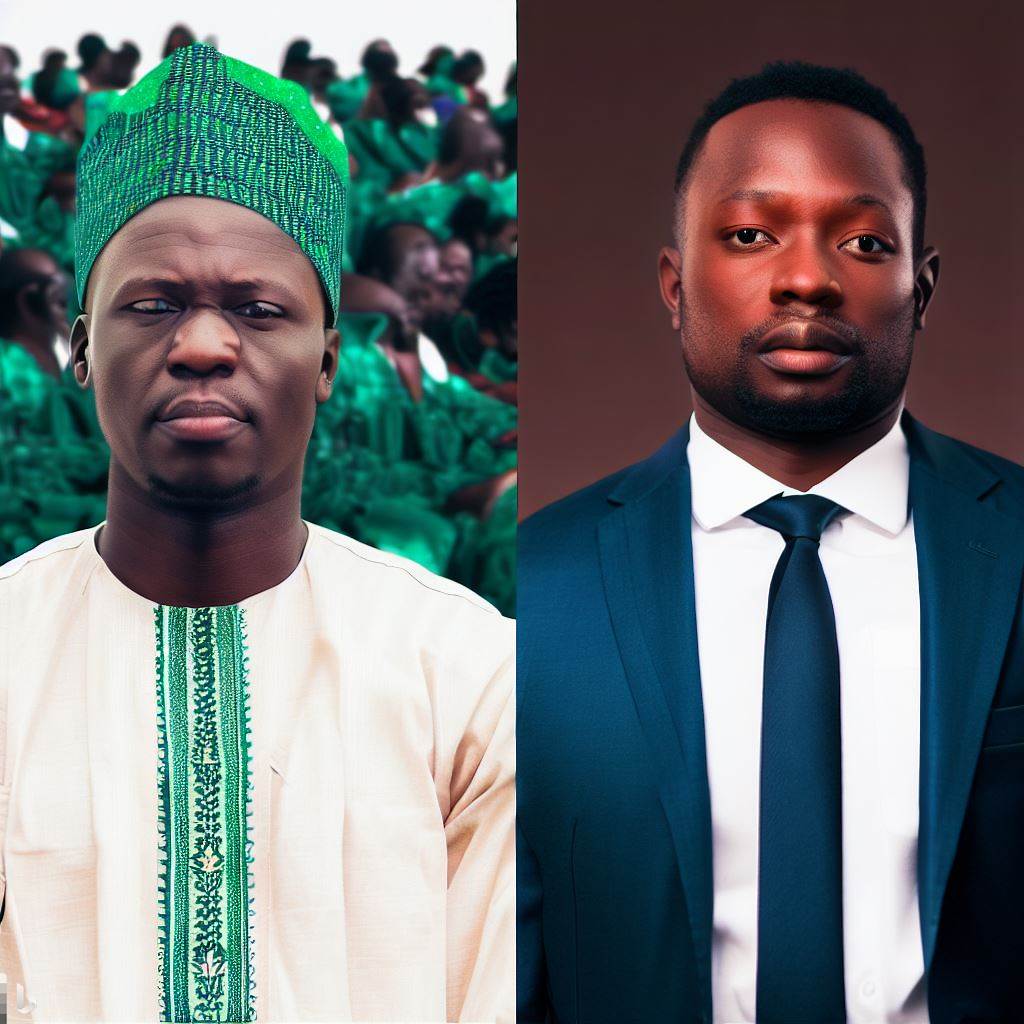Introduction
In this section, we will explore the fascinating theme of bridging tradition and modernity in Nigerian costume design.
Significance of bridging tradition and modernity in Nigerian costume design
The fusion of tradition and modernity in Nigerian costume design is vital as it reflects the social, cultural, and historical context of the country.
Overview of Nigerian costume design history
Nigerian costume design has a rich history rooted in diverse ethnic groups, each with its unique traditions and styles.
Read: Profiling Successful Nigerian Authors: Their Stories
Traditional Nigerian Costume Design
Description of traditional Nigerian clothing
- Clothing in Nigeria reflects the diverse cultures and traditions of its various ethnic groups.
- Traditional Nigerian clothing is often colorful, vibrant, and made with high-quality fabrics.
- Fabrics like Ankara, Aso Oke, and Adire are commonly used in Nigerian clothing.
- Nigerian clothing includes both loose-fitting garments, such as robes and gowns, and form-fitting outfits.
- Traditional Nigerian clothing can be adorned with intricate embroidery, beadwork, and other decorative elements.
Symbolism and cultural significance in Nigerian costume design
- Nigerian costume design carries rich symbolism and cultural significance.
- Colors used in Nigerian clothing often represent different meanings and emotions.
- Certain patterns and motifs used in Nigerian clothing reflect specific cultural symbols and beliefs.
- Traditional Nigerian attire is often worn for important cultural ceremonies and celebrations.
- Nigerian costume design helps preserve cultural identity and heritage.
Examples of traditional Nigerian attire
- Agbada: A flowing gown worn by men, often with matching trousers and a cap.
- Buba and Wrapper: A loose-fitting blouse paired with a wide, wraparound skirt, worn by women.
- Dashiki: A loose, tunic-style shirt, often adorned with vibrant prints and embroidery.
- Gele: A headscarf worn by Nigerian women, skillfully tied to create elaborate and stylish designs.
- Isiagu: A pullover shirt with a unique pattern, often worn during cultural festivals and weddings.
Traditional Nigerian costume design showcases the rich cultural heritage and diversity of the country.
The clothing is characterized by its vibrant colors, intricate details, and symbolic meanings.
Whether it’s the flowing gowns of the Agbada or the elegant headscarves known as Gele, Nigerian attire embodies a strong sense of tradition and identity.
By embracing and preserving these traditional designs, Nigerians bridge the gap between tradition and modernity, creating a unique and timeless style that continues to captivate the world.
Read:The Role of Nigerian Writers in Society Today
Evolution of Nigerian Costume Design
Influence of Western fashion on Nigerian costume design
- Western fashion trends have greatly influenced and shaped Nigerian costume design.
- Introduction of Western fabrics, styles, and techniques have brought about significant changes in Nigerian fashion.
- Nigerian designers have adapted to these influences, incorporating them into their creations.
- This fusion of Western and Nigerian elements has allowed for the evolution of Nigerian costume design.
Emergence of fusion fashion
- Fusion fashion, blending traditional Nigerian attire with modern elements, has gained popularity.
- This style resonates with Nigerians as they strive to bridge tradition and modernity in their outfits.
- Fusion fashion allows individuals to showcase their cultural heritage while embracing contemporary fashion.
- By combining traditional and modern elements, fusion fashion offers versatility and creativity in Nigerian costume design.
Examples of Nigerian designers who incorporate tradition and modernity
Tiffany Amber
- Founder Folake Coker integrates Nigerian fabrics and aesthetics into her contemporary designs.
- She promotes African culture and empowers local artisans through her fashion brand.
Lisa Folawiyo
- Known for her innovative use of Ankara prints, Folawiyo combines traditional African fabrics with modern silhouettes.
- Her designs appeal to both local and global audiences, bridging tradition and modernity.
Mai Atafo
- Atafo’s designs showcase his mastery of tailoring techniques while incorporating traditional Nigerian elements.
- His work reflects a mix of Nigerian culture and contemporary fashion, appealing to a wide audience.
Deola Sagoe
- With a focus on haute couture, Sagoe blends traditional Nigerian fabrics with modern designs.
- Her creations have been showcased on international runways, gaining recognition globally.
The Evolution of Nigerian costume design can be attributed to several factors.
The influence of Western fashion has brought about significant changes, with Nigerian designers incorporating Western elements into their creations.
Fusion fashion emerges, blending tradition and modernity. Nigerians resonate, showcasing heritage while embracing contemporary style.
Nigerian designers like Tiffany Amber, Lisa Folawiyo, Mai Atafo, and Deola Sagoe exemplify the successful incorporation of tradition and modernity in their designs.
As Nigerian costume design continues to evolve, the fusion of tradition and modernity will remain a key aspect of this vibrant and diverse fashion industry.
Read: Starting a Writing Career in Nigeria: Steps and Tips
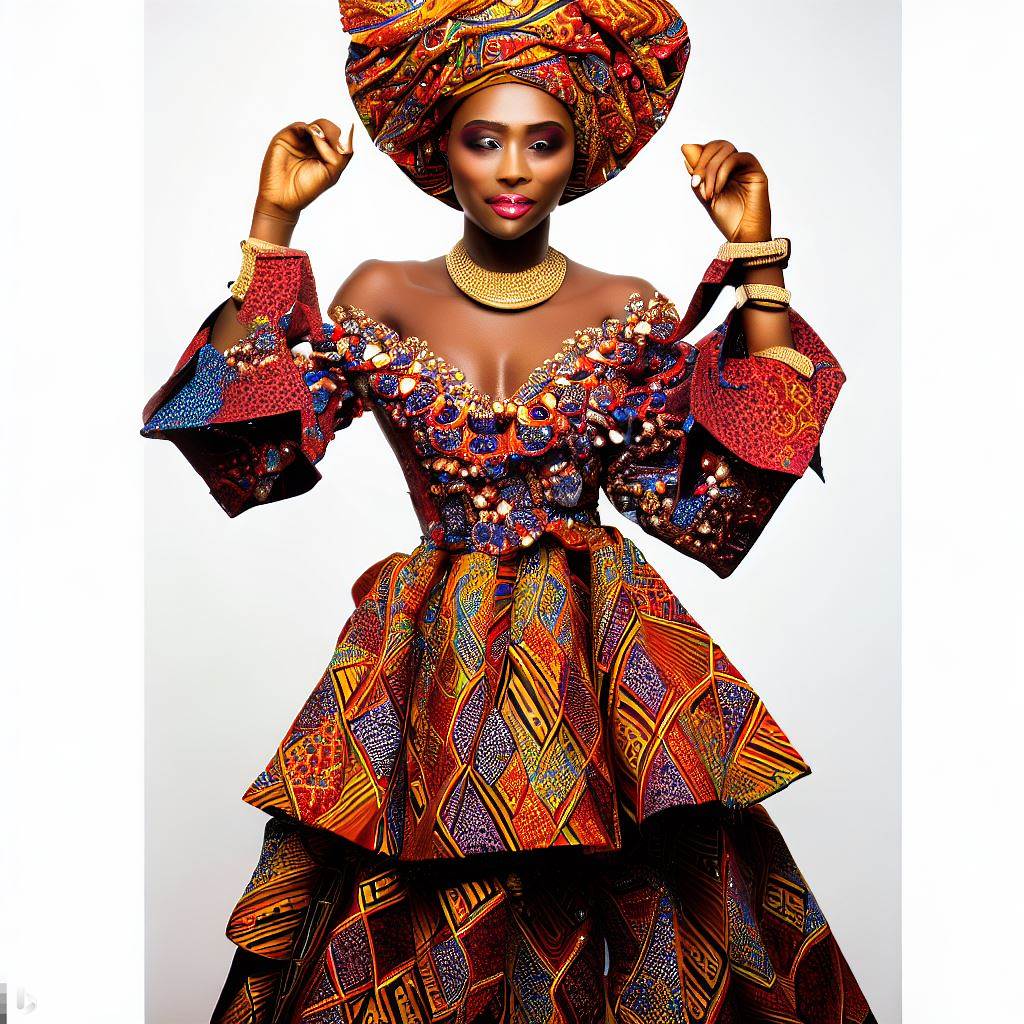
Challenges in Bridging Tradition and Modernity
Cultural preservation and authenticity concerns
Cultural preservation and authenticity concerns play a significant role in bridging tradition and modernity in Nigerian costume design.
Traditional Nigerian costumes carry deep cultural and historical meanings, allowing individuals to connect with their heritage.
However, in the face of evolving fashion trends, designers face the challenge of preserving the integrity and authenticity of traditional costume while incorporating contemporary elements.
One of the challenges in this endeavor is the risk of diluting the cultural significance of traditional costumes.
The appropriation of traditional designs without understanding their meaning can result in the misrepresentation or commodification of cultural symbols.
It is crucial for designers to approach this challenge with sensitivity and respect, ensuring that the essence of tradition is preserved.
Another challenge arises from the need to strike a balance between tradition and innovation.
While it is essential to modernize costume designs to cater to changing tastes and preferences, maintaining key elements of tradition is equally important.
Designers must carefully consider which aspects of tradition to retain, as altering or removing certain elements may lead to the loss of cultural identity.
Balancing tradition and innovation in costume design
The challenge of balancing tradition and innovation in costume design comes with the responsibility of satisfying both cultural significance and contemporary aesthetics.
Designers must find ways to integrate modern elements into traditional costumes without compromising their essence.
To bridge this gap, designers often draw inspiration from traditional motifs, textiles, and manufacturing techniques to create innovative designs.
They reinvent traditional costumes by experimenting with new fabrics, embellishments, and silhouettes while staying true to the core elements that define their cultural roots.
Through this process, designers have the opportunity to redefine and revitalise traditional costume designs, making them more accessible and appealing to a wider audience.
This fusion of tradition and modernity allows for the evolution of Nigerian costume design while preserving its rich cultural heritage.
Social and economic implications
Bridging tradition and modernity in Nigerian costume design has both social and economic implications.
It not only shapes the cultural landscape but also has the potential to drive economic growth through the fashion industry.
By incorporating traditional elements into contemporary designs, designers can create garments that resonate with individuals seeking a connection to their cultural heritage.
This, in turn, fosters a sense of pride and identity among Nigerians who wear these costumes, contributing to the preservation and celebration of cultural diversity.
The fusion of tradition and modernity in costume design opens doors for economic opportunities.
It allows designers to tap into both local and international markets, catering to diverse consumer preferences.
This can lead to increased demand, creating job opportunities and contributing to the growth of the Nigerian fashion industry.
Most Importantly, the social and economic implications of bridging tradition and modernity in Nigerian costume design must be approached with ethical considerations.
Practice fair trade, source materials sustainably, collaborate respectfully with artisans and communities. Ensure equitable benefits and cultural integrity.
Bridging tradition and modernity in Nigerian costume design is not without its challenges.
Cultural preservation and authenticity concerns, balancing tradition and innovation, as well as social and economic implications, all require careful consideration.
However, by approaching these challenges with respect, creativity, and ethical practices, designers can create a harmonious fusion that celebrates the past while embracing the future.
Read:Challenges Faced by Nigerian Writers and How to Overcome
Explore Further: Nigerian Music Directors and their Influence on Genres
Successful Examples of Bridging Tradition and Modernity in Nigerian Costume Design
Case studies of Nigerian designers who effectively blend tradition and modernity
- Lisa Folawiyo: Known for her innovative use of traditional Nigerian textiles, Folawiyo seamlessly combines traditional techniques with modern silhouettes.
- Maki Oh: This designer skillfully incorporates traditional Yoruba elements into contemporary designs, attracting global attention and praise.
- Deola Sagoe: With her signature mix of traditional Nigerian fabrics and modern styles, Sagoe has gained international acclaim.
Impact on the global fashion industry
- Nigerian costume designers have made a significant impact on the global fashion industry by introducing unique and diverse aesthetics.
- Their blend of tradition and modernity has challenged conventional Western fashion norms, encouraging creativity and cultural appreciation.
Recognition and accolades received by Nigerian designers
- Nigerian designers’ ability to bridge tradition and modernity has garnered them numerous awards and recognition worldwide.
- They have been featured in prestigious fashion magazines, showcased in international fashion weeks, and worn by celebrities.
Overall, Nigerian costume designers have successfully bridged tradition and modernity, earning global recognition for their innovative and culturally-rich designs.
Blending traditional Nigerian textiles and techniques with modern styles, they impact the global fashion industry, challenging norms and fostering cultural appreciation..
Through the recognition they have received, Nigerian designers have showcased the importance and beauty of preserving and celebrating tradition in costume design.
Conclusion
Nigerian costume design serves as a medium for preserving cultural heritage while embracing contemporary influences.
By combining traditional elements with modern aesthetics, designers create garments that reflect a dynamic Nigerian identity.
Nigerian costume design has vast potential for growth and evolving with societal changes.
Designers should continue to push boundaries, experiment with techniques, and incorporate new materials to remain relevant.
As Nigeria’s global influence increases, its costume design will gain recognition on the international stage.
We anticipate a future where Nigerian designers revolutionize the fashion industry with their unique perspectives.
The ongoing dialogue between tradition and modernity will shape the future of Nigerian costume design and propel it to new heights.

